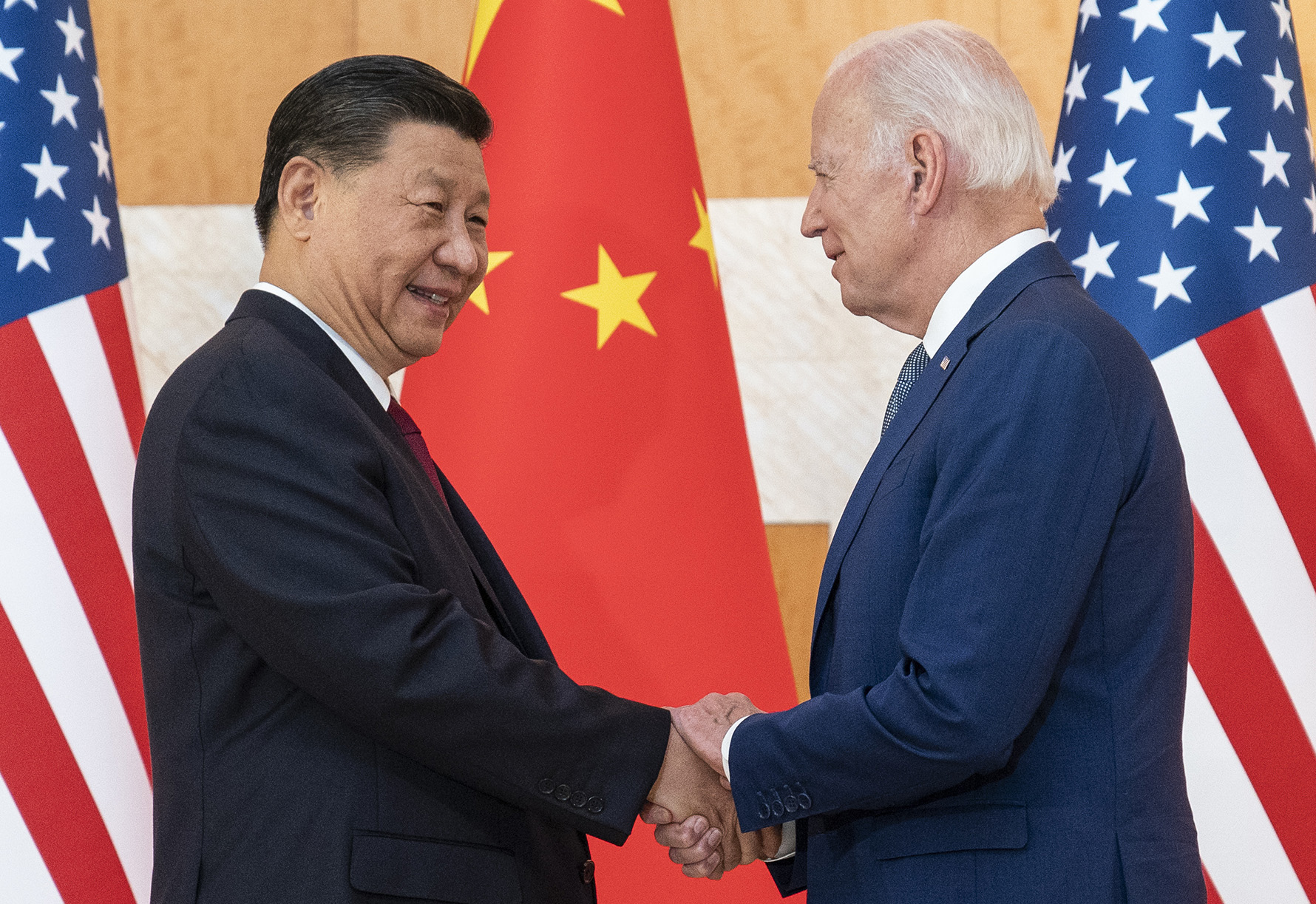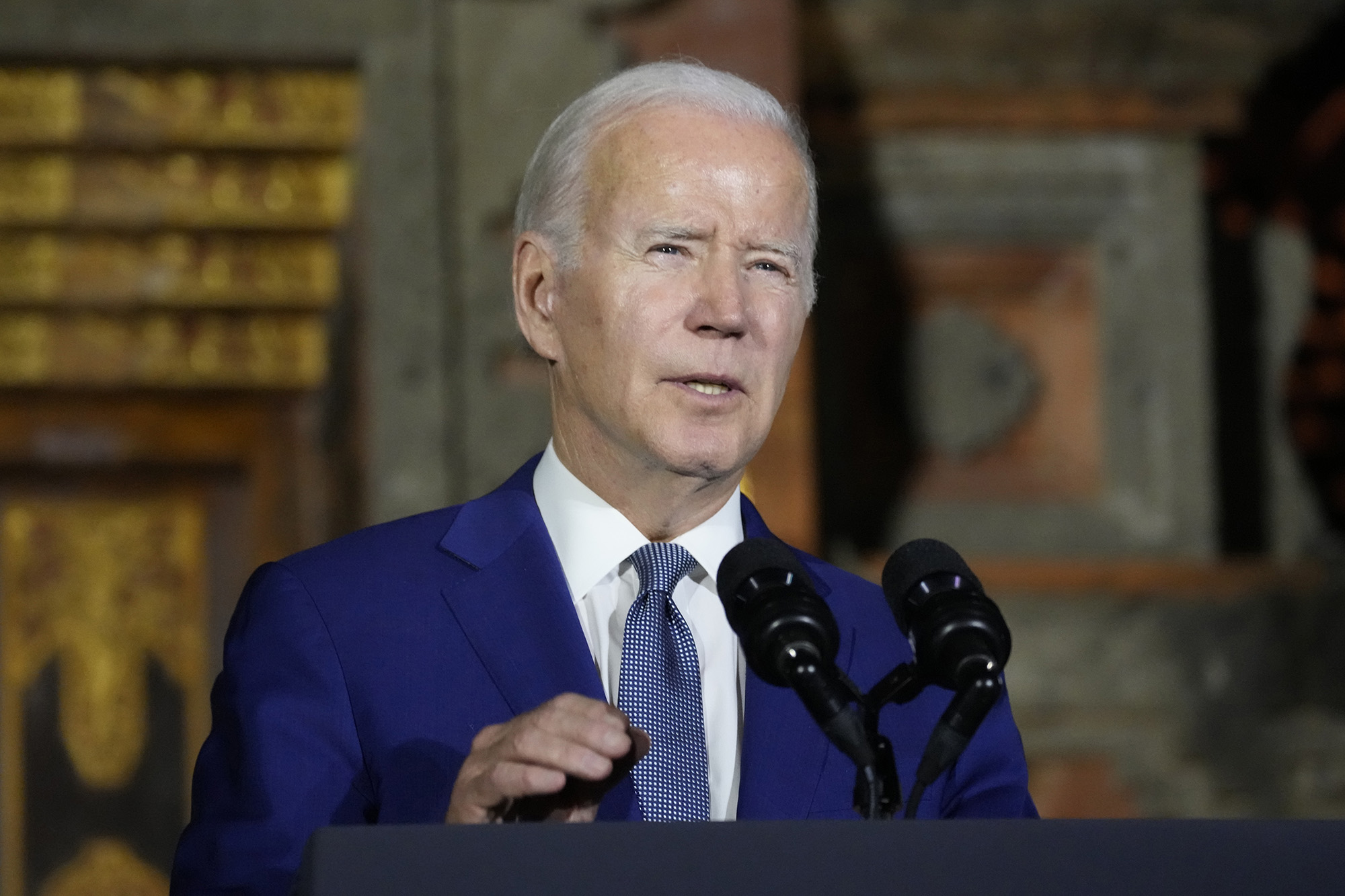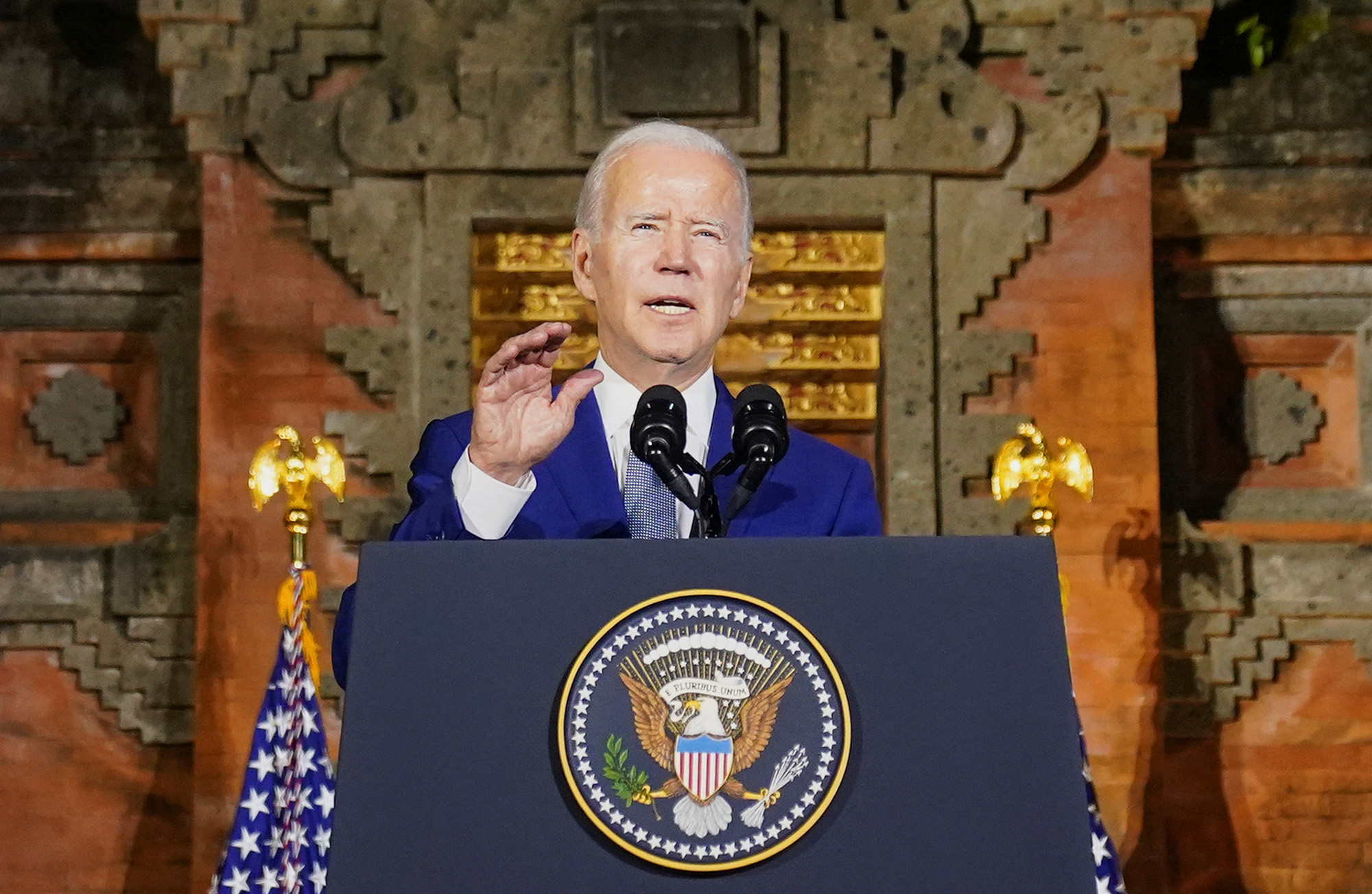Our live coverage of US President Joe Biden and Chinese leader Xi Jinping's meeting on the sidelines of the G20 has ended.
Read our full report here.
By Simone McCarthy and Nectar Gan, CNN
Our live coverage of US President Joe Biden and Chinese leader Xi Jinping's meeting on the sidelines of the G20 has ended.
Read our full report here.
Expectations for major changes to the rocky US-China relationship were low heading into Monday evening's meeting between US President Joe Biden and Chinese leader Xi Jinping. And the summaries of the meetings released by the two sides afterwards revealed on-going divisions over key issues like Taiwan, human rights, technology and trade.
But the roughly three-hour face-to-face between the leaders did appear to a deliver on a key opportunity both sides appeared keen for: bolstering their communication.
Dialogue between Beijing and Washington had hit a new low in August, when Beijing cancelled dialogue across a number of areas in retaliation for US House Speaker Nancy Pelosi's visit to Taiwan. Both sides have expressed fears of the potential consequences of a misunderstanding.
In their respective statements following Monday's meeting on the sidelines of the G20, both Washington and Beijing signaled that they would move forward on working together on a range of issues including climate change, health and food security --- and they pledged to keep communication lines open.
"The two presidents agreed that their respective diplomatic teams should maintain strategic communication and conduct regular consultations; their financial teams will continue dialogue and coordination on macroeconomic policies, economic ties and trade ...They agreed to make good use of the China-US joint working group to promote the resolution of more issues," a readout from China's Foreign Ministry said.
The White House said the two leaders agreed to "empower key senior officials to maintain communication and deepen constructive efforts" on issues such as climate change, global macroeconomic stability including debt relief, health security, and global food security. It also said the leaders supported efforts to address specific issues in the US-China relationships through working groups and other mechanisms.
"(Biden) reiterated that (US-China) competition should not veer into conflict and underscored that the United States and China must manage the competition responsibly and maintain open lines of communication," the statement said, adding that the leaders asked their teams to carry this work forward.
Secretary of State Blinken will visit China to follow up on their discussions, the White House said.
In a press conference following the meeting, Biden suggested that the open communication started with the leaders themselves this time around: "I want to be clear, and be clear with all leaders, but particularly with Xi Jinping that I mean what I say and I say what I mean. So there's no misunderstanding -- that's the biggest concern."
"And I must say (Xi) was as straightforward as he has been with me in the past. And I think that we understand one another, which is the most important thing that can be done."
From CNN's Maegan Vazquez
Addressing the press following his meeting with Chinese leader Xi Jinping Monday, US President Joe Biden said "there need not be a new Cold War" with China, arguing conflict in competition between the two world powers can be avoided.
Biden told reporters that the two leaders "were candid and clear with one another across the board." Adding, "I absolutely believe there need not be a new Cold War."
The American President also said he does not think there is "any imminent attempt on the part of China to invade Taiwan."
Since taking office, Biden has repeatedly stated the US had an obligation to protect Taiwan should China attempt to invade. But at Monday's press conference, Biden told reporters he "made it clear" to Xi "that our policy in Taiwan has not changed at all. It's the same exact position we've had."
"I made it clear that we want to see cross-strait issues peacefully resolved. And, and so it never has to come to that," Biden said in reference to possible escalations. "And I'm convinced that he understood exactly what I was saying. I understood what he was saying."
Biden said both parties will continue to communicate through staff and Cabinet levels on issues discussed during their meeting.
"Look, I think the United States is better prepared than any country in the world economically and politically, to deal with the changing circumstances around the world," he added.
Chinese leader Xi Jinping spoke with US President Joe Biden for more than three hours in their first in-person meeting as top leaders.
China’s Foreign Ministry has released a 1,600-word readout of what it says was discussed during their talks, and here are the main takeaways:
From CNN's Nectar Gan in Bali, Indonesia and Simone McCarthy in Hong Kong

Xi Jinping’s handshake with US President Joe Biden has sent a clear message: the Chinese leader is now firmly back on the world stage.
Xi took no overseas trips since the start of the pandemic as China heavily restricted its borders and ramped up a stringent zero-Covid policy. Instead, the leader of the world's second largest economy conducted "cloud diplomacy" beaming into events via video-link and hosting summits online, even as his counterparts returned to business as usual.
But now, as Xi emerges back onto the world stage with his participation at the G20 and APEC summits in Bali and Bangkok this week, he is doing so having concentrated more power than ever before at home -- consolidated his status as the strongest Chinese leader since Chairman Mao Zedong.
Three weeks before Xi traveled to Bali, Indonesia to meet with Biden on the sidelines of the G20 summit, he was anointed a norm-shattering third term in office at the Communist Party’s National Congress.
The key political meeting also saw Xi retiring key party leaders seen as not in his inner circle and stacking the party’s top ranks with his staunch allies, some of whom were sitting at the table alongside Xi during his meeting with Biden on Monday evening.
While Xi took one international trip prior to that major leadership reshuffle, it was for a regional meeting of that saw Russia, China, India and Central Asian leaders gather in Uzbekistan one month prior to the leadership reshuffle at home.
Now, as he has consolidated power at home, it's clear that Xi is prepared to more squarely focus his attention on the international stage to address perceived threats to China there -- with the meeting with Biden being a key milestone in that new chapter of Xi's third term.
From CNN's Kevin Liptak in Bali, Indonesia
US President Joe Biden says he isn’t certain whether China has the ability to influence North Korea’s decision-making when it comes to nuclear or missile tests.
But he said he believes Chinese leader Xi Jinping does not want further escalatory action by Pyongyang, and sought to underscore what further provocations from the North might mean for the US presence in the region.
“I made it clear to President Xi Jinping that I thought they had an obligation to attempt to make it clear to North Korea that they should not engage in long range nuclear tests and I made it clear as well that if they did, they meaning North Korea, that we would have to take certain actions that would be more defensive on our behalf and it would not be directed against…China,” Biden said at a news conference in Bali after meeting with Xi for several hours.
“It's difficult to determine whether or not China has the capacity” to convince Kim Jong Un to back off his tests, Biden said. “I'm confident China is not looking for North Korea to engage in further escalatory means.”
From CNN's Kevin Liptak in Bali, Indonesia

US President Joe Biden says he did not interpret any "imminent attempt" by China to invade self-governing Taiwan after meeting for more than three hours with Chinese leader Xi Jinping.
Biden said in their talks, he made clear the US policy toward Taiwan had not changed, despite saying four times ahead of the talks the US would defend Taiwan militarily if China were to move on the self-governing island.
"I made it clear that we want to see cross-strait issues peacefully resolved, so it never has to come to that," Biden said of any potenital conflict over Taiwan.
"I'm convinced that that he understood exactly what I was saying," Biden said of the conversation on Taiwan.
From CNN's Betsy Klein
US President Joe Biden said he plans to manage China and its leader Xi Jinping’s competition “responsibly” as he recapped their three-hour meeting Monday evening in Bali, detailing topics of an “open and candid” discussion.
“We had an open and candid conversation about our intentions and our priorities. It was clear – he was clear and I was clear that we’ll defend American interests and values, promote universal human rights, and stand up to the international order and work in lockstep with our allies and partners,” Biden told reporters.
He continued, “We’re going to compete vigorously, but I’m not looking for conflict. I’m going to manage his competition responsibly.”
Biden said he told Xi that the US One China policy “has not changed” and the US “(opposes) unilateral change in the status quo by either side.”
He said the US and China “should be able to work together where we can to solve global challenges that require every nation to do its part.”
Other topics included Russia’s aggression against Ukraine and a shared “belief in the threat for the use of nuclear weapons is totally unacceptable.”
Biden reiterated that Secretary of State Antony Blinken will travel to China for follow-up meetings.
From CNN's Maegan Vazquez

US President Joe Biden began his press conference in Bali by speaking about the "strength and resilience" of American democracy following the recent midterm elections.
During the campaign season, the President sought to cast the election as a referendum on election denialism and political violence, warning the future of American democracy was in danger and on the ballot in November.
Since Biden's departure from Washington for his multi-leg international trip, results from Arizona and Nevada have shown that Democrats are poised to keep a majority in the US Senate.
"What we saw was the strength and resilience in American democracy. We saw it in action. The American people prove once again that democracy is who we are," Biden said from the podium on Monday after his meeting with Chinese leader Xi Jinping.
Biden said the elections showed "a strong rejection of election deniers at every level from those seeking to lead our states and noses to get to serve in Congress and also those seeking to oversee the elections. And there was a strong rejection of political violence and voter intimidation."



